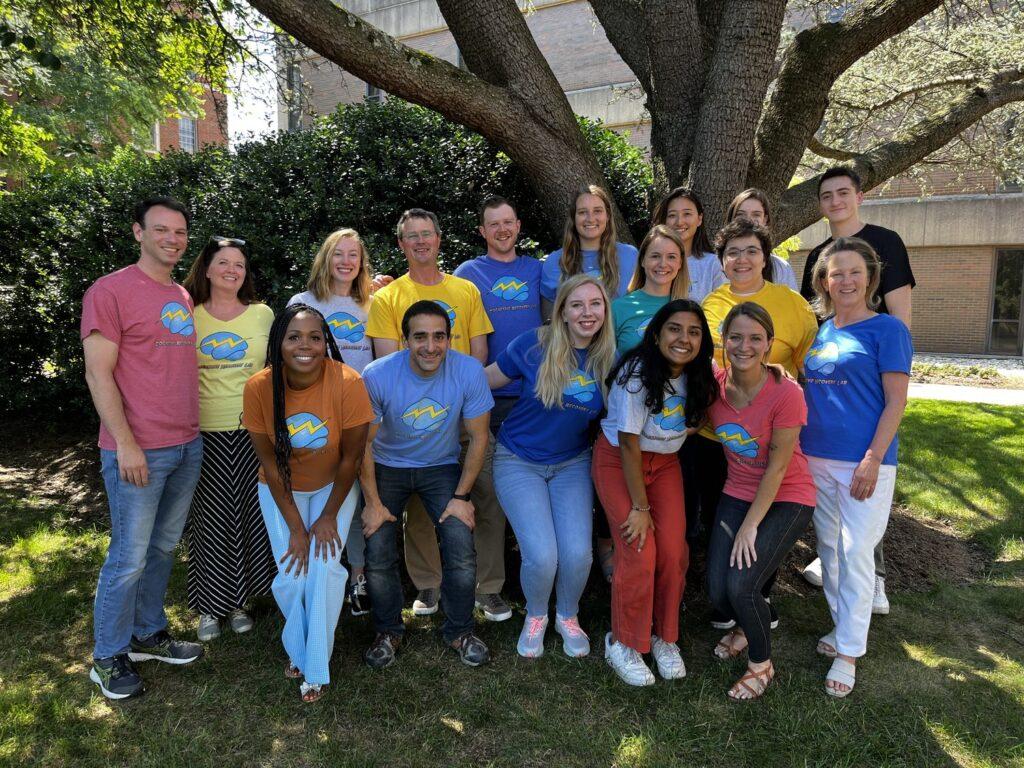Imagine losing your ability to speak, write or even understand language. This is what people diagnosed with aphasia, a disorder that typically arises after someone experiences a stroke or another type of brain injury, have to go through. This can be devastating, but researchers in the Georgetown Cognitive Recovery Lab are examining the data behind the disease to help improve the lives of those with aphasia.
David Morales-Sanz (CAS ’24), who is a member of the lab, said the disease can have a myriad of effects on patients’ communication, “whether it is their ability to comprehend it, to articulate it, or to put it into a grammatical sentence.”
Treatments for aphasia are currently limited to language and speech recognition therapy, both of which utilize exercises to help people improve their “speech intelligibility,” or the extent to which they can pronounce certain words. However, these treatments are not always effective. A study performed by the Journal of Stroke & Cerebrovascular Diseases found that only 38% of aphasia patients had recovered fully upon their discharge from the hospital — and researchers in the Cognitive Recovery Lab are trying to raise this percentage by targeting root causes.
“The focus is on looking into aphasia recovery and really getting to the bottom of what goes into speech loss after a stroke,” student researcher Sofia Veljkovic (CAS ’25) told The Hoya.
To find the drivers of speech loss, researchers in the lab have organized data from videos of tested patients and analyzed it to find commonalities and differences in the way people react to strokes.
“There’s videos of the testing sessions, and we mark up the video to record utterance time,” Veljkovic said. “We look at things like how long it takes participants to respond to questions, how long they can repeat certain syllables and how many times they can repeat a certain phrase in five seconds.”
Student researchers in the lab are currently working to analyze this testing data and compile it in a more understandable format, but researchers know cures are far away. Aphasia is a very complex disorder, and thus treatment may not always cure patients instantly nor at all, according to Morales-Sanz.
“If we can help the patient, we always will, but this is not always possible,” Morales-Sanz said.
According to Morales-Sanz, every case of aphasia looks different, as factors including preexisting health conditions and vitals can all play a role in how a patient responds to such a severe brain injury. However, collecting data on how previous patients have responded to brain injuries can help doctors understand how to better treat similar patients in the future.
“How they move and talk after a stroke is not only dependent on the stroke but all the situations around and after the event itself,” Morales-Sanz said. “Every person is an individual case, but if we understand that people with hypertension who suffer a stroke tend to have this or that effect, when someone new with hypertension comes in the doctor’s office who had a stroke we have a much better understanding of how to treat them.”
Currently, the lab is working on their newest project: Brain-based Understanding of Individual Language Differences After Stroke (BUILD). This project aims to expand on the lab’s data by analyzing brain connections between people who have been affected by a stroke and those who have not. By studying the differences among these patients, the lab hopes that future physicians and researchers can use their findings to predict who is likely to recover well from a stroke and who may need more treatment.
Losing the ability to communicate can be devastating, but Morales-Sanz said the Cognitive Recovery Lab has united a variety of people trying to create better care for afflicted patients.
“It can be tough, but allowing people to pursue their passions allows us to work together towards the goal,” Morales-Sanz said.










Jaskirit Bhalla • Apr 13, 2023 at 1:31 am
The article’s writer, Devansh Gandhi, has done an excellent job of shedding light on the important work being done by student researchers in the Georgetown Cognitive Recovery Lab. Their efforts to improve the lives of those with aphasia are commendable, and Gandhi has done an excellent job of explaining the complex disorder and the limitations of current treatments. The article is well-researched and informative, and Gandhi’s writing style is engaging and easy to read. Overall, this article is a great example of how to write about scientific research in a way that is both accessible and interesting to a wide audience.